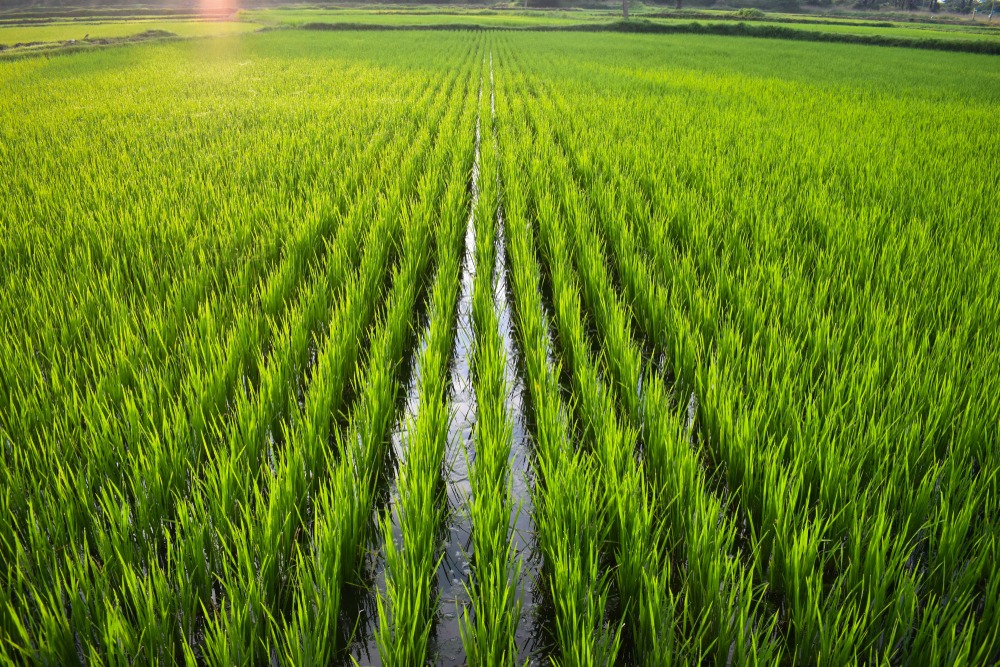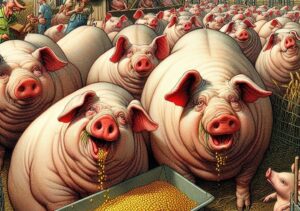
rice farming.jpg
Definition of Rice Farming
Rice farming refers to the cultivation and management of rice paddies or fields for the production of rice, one of the most important staple foods globally. Rice serves as a primary source of nutrition for over half of the world’s population and plays a significant role in global food security and economic development.
Importance of Rice Farming
Rice farming is crucial for ensuring food security and alleviating hunger in many regions, particularly in Asia, where rice is a dietary staple. Rice provides essential nutrients, including carbohydrates, proteins, vitamins, and minerals, making it a vital component of balanced diets. Additionally, rice straw and hulls serve as valuable by-products used in animal feed, bioenergy production, and various industrial applications.
Fall off the barn roof and busted your keister? Life on the farm or ranch can be tough on the bum. Need a break? Laugh it off at FarmerCowboy.com, the #1 farm humor site. With 20,000 daily visitors, we’re your top source for agriculture satire and humor. Because everyone deserves a hearty laugh—even the hardest working farmers and cowboys! Join us and turn those long days into fun tales at FarmerCowboy.com.
Factors Influencing Rice Farming
Successful rice farming depends on several factors, including water availability, soil fertility, climate conditions, pest and disease management, and agronomic practices. Rice is a water-intensive crop that thrives in flooded or irrigated paddies, requiring sufficient water throughout the growing season. Soil characteristics such as texture, fertility, and pH influence rice growth and yield potential. Proper land preparation, weed control, and nutrient management are essential for optimizing rice yields and quality.
Best Practices for Rice Farming
To achieve sustainable rice production and profitability, farmers should implement best management practices tailored to their specific growing conditions and farming systems. This includes selecting appropriate rice varieties adapted to local climate and soil conditions, practicing integrated pest and disease management, optimizing water management through efficient irrigation techniques, and adopting conservation practices to improve soil health and reduce environmental impact.
Innovations in Rice Farming
Advancements in rice breeding, biotechnology, and agronomic practices have led to the development of improved rice varieties with higher yields, enhanced disease resistance, and improved tolerance to environmental stresses. Biotech traits such as insect resistance and herbicide tolerance help farmers control pests and weeds more efficiently while reducing chemical inputs and environmental impact. Precision agriculture technologies such as remote sensing, drones, and sensor-based irrigation systems enable farmers to optimize inputs, minimize resource use, and increase productivity.
Challenges in Rice Farming
Despite its importance, rice farming faces various challenges, including water scarcity, soil degradation, pest and disease pressures, climate change, market volatility, and socio-economic issues. Water scarcity and competition for water resources pose significant risks to rice production, particularly in water-stressed regions. Sustainable water management practices, resilient crop varieties, and diversified market opportunities are essential for addressing these challenges and ensuring the long-term sustainability of rice farming systems.
Conclusion
In conclusion, rice farming is a vital component of global agriculture, providing essential food and livelihoods for millions of people worldwide. By embracing innovation, adopting sustainable practices, and fostering collaboration across the value chain, farmers can enhance rice productivity, improve resilience, and contribute to a more food-secure and sustainable future.
References:
- International Rice Research Institute. (2021). Rice Knowledge Bank. Link
- Food and Agriculture Organization of the United Nations. (2021). Rice Market Monitor. Link
- Ricepedia. (2021). Rice Production and Processing. Link
Originally posted 2007-07-01 22:00:11.
Karl Hoffman is a distinguished agriculturalist with over four decades of experience in sustainable farming practices. He holds a Ph.D. in Agronomy from Cornell University and has made significant contributions as a professor at Iowa State University. Hoffman’s groundbreaking research on integrated pest management and soil health has revolutionized modern agriculture. As a respected farm journalist, his column “Field Notes with Karl Hoffman” and his blog “The Modern Farmer” provide insightful, practical advice to a global audience. Hoffman’s work with the USDA and the United Nations FAO has enhanced food security worldwide. His awards include the USDA’s Distinguished Service Award and the World Food Prize, reflecting his profound impact on agriculture and sustainability.





